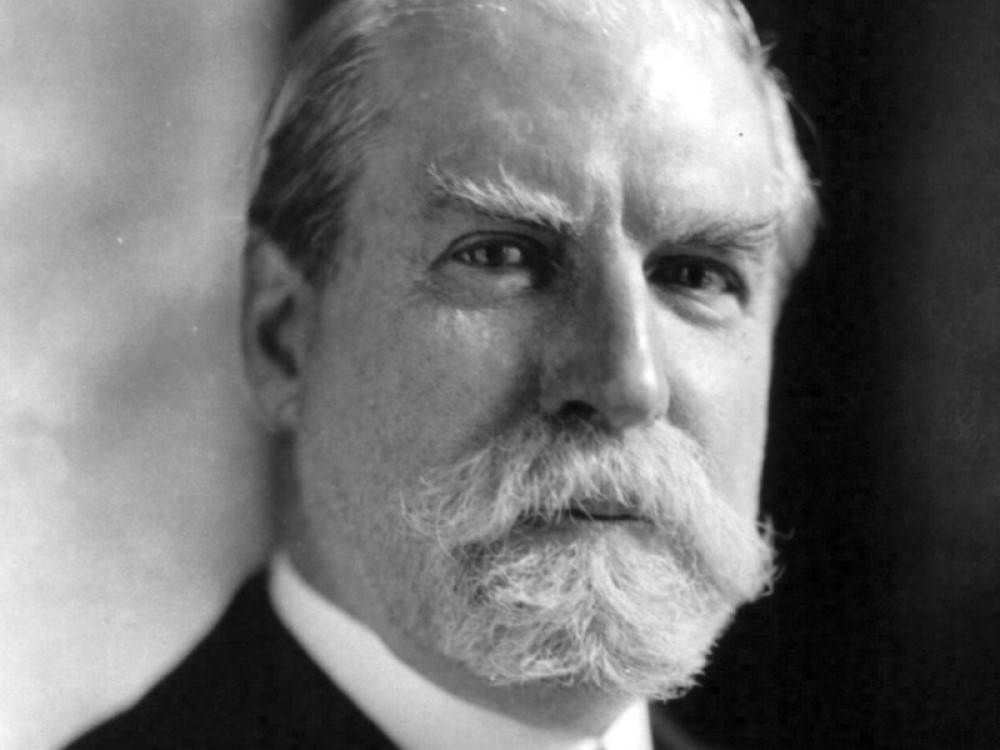
Born in upstate New York in 1862, Charles Evans Hughes devoted himself to public service and the law, serving as the 11th Chief Justice of the United States from 1930 to 1941. Known as a master of building consensus, Hughes presided over the Supreme Court during one of its most difficult periods. Writing numerous landmark opinions on freedom of speech, Hughes was responsible for guiding the Court's transformation into its current role as a protector of civil liberties. In addition to his brilliant legal mind, Hughes also had an active career in politics. A member of the Republican party, the statesman served as Governor of New York, was a 1916 candidate for President of the United States, and served as the country's Secretary of State. In 1941, Hughes left the Supreme Court having written twice as many constitutional opinions as any other justice.
A precocious child, Hughes enrolled at Columbia Law School when he was only 19 years old. It was during the next three years of his life that Hughes discovered his gift for legal matters. Despite being much younger than his classmates at Columbia, he graduated first in his class in 1884. That same year, Hughes also passed the New York bar exam with the highest score ever awarded by the state. Furthermore, in recognition of his academic achievements, he was awarded the Columbia Law School prize fellowship, which allowed him to stay on at the law school (while earning 500 dollars a year) to tutor and conduct quizzes for law students. He did this from 1884 to 1887, while also maintaining a private practice.
The legacy of legal and political excellence Hughes left at his alma mater cannot be denied. Following his death in 1948, university leaders endowed the Charles Evans Hughes Professorship at Columbia Law. Today, any qualifying second-year law students can be awarded Charles Evans Hughes Fellowships. On top of that, in 1962, on the centennial of Hughes's birth, a bust of the late Columbian was presented to the Columbia Law School by Hughes's son-in-law. During the ceremony, President Grayson Kirk, who accepted the gift for the University, referred to Justice Hughes's belief that a "public office is a public trust" as a perfect example of the jurist's achievement in setting standards at Columbia Law School as well as in public life for all U.S. citizens today.
